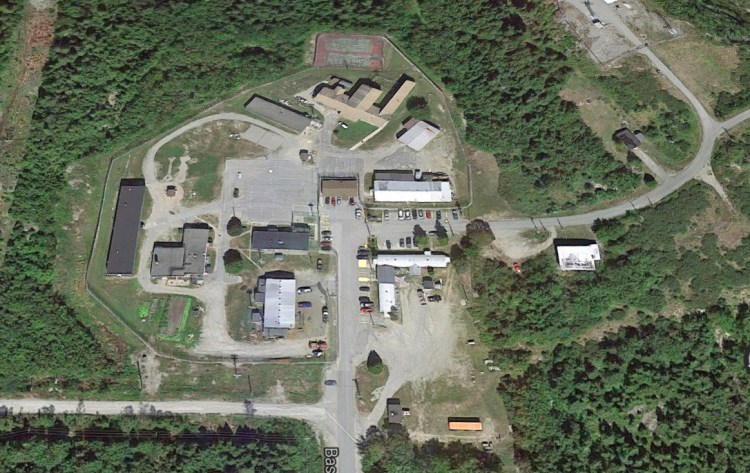AUGUSTA — A judge has ordered the LePage administration to continue operating the now-empty Downeast Correctional Facility, handing at least a partial victory to Washington County officials upset with the prison’s sudden closure.
In a 12-page ruling, Superior Court Justice Michaela Murphy agreed with the county, union officials and Attorney General Janet Mills that LePage overstepped his constitutional authority when he emptied the Machiasport prison in a secret, pre-dawn operation on Feb. 9. Murphy ordered the Maine Department of Corrections “to operate DCF” in accordance with state law “until the Legislature acts to repeal (the law) or ceases to fund DCF.”
But Murphy declined to order the LePage administration to return inmates to the minimum-security prison and to reinstate workers, as the unions and Mills’ office had requested. Instead, she wrote that the court “defers to the commissioner as to the operation of the facility,” leaving the question of the prison’s status in doubt.
LePage, who has been pushing to close the prison for years, interpreted that deferral as a victory although he acknowledged he had not read the ruling.
“I haven’t read it yet because it’s in the mail … but my understanding is that she is deferring to the commissioner,” LePage told reporters during a brief exchange Thursday afternoon. “So we are going to do what the commissioner says that we have to do.”
Meanwhile, members of Washington County’s legislative delegation cheered the ruling.
“I am very relieved that Judge Murphy saw that the governor overstepped his authority when he shut down the facility without legislative approval,” Rep. Anne Perry, D-Calais, said in a statement. “Downeast was a model for how to reintegrate prisoners into society. They were getting confidence and hope to prepare for life outside of prison. There is a lot of damage to undo from the governor’s action.”
Chris Gardner, chairman of the Washington County commissioners, said that while he and other local officials were pleased with the ruling, they also realize “this is only a step in the process and there is more work that needs to be done.”
“Obviously, it is a win in this phase, but it still leaves many questions that need to be worked out, as in what are the next steps and what does this mean for the future of the Downeast Correctional Facility,” Gardner said in an interview.
Gardner said Murphy clearly validated their concerns about impacts about the process the administration followed when closing the prison and the impacts on the local community.
“The ruling stands on its own merits,” he added. “Our interpretation of it is that he has to operate it as a correctional facility at least until it is closed by the Legislature, and we are anxious to see what the (corrections) commissioner does.”
The future of Downeast Correctional after June 30 remains unclear as well.
Following Murphy’s ruling, supporters of Downeast Correctional in the Maine House attempted to revive a stalled bill that would fund the prison for another year. But the bill, which would provide $5.5 million in funding beginning July 1, failed to garner the two-thirds majority needed to move forward as an “emergency measure” and to override an all-but-guaranteed veto from LePage.
Washington County officials sued the administration last month to prevent LePage from dismantling a facility that supports dozens of jobs in the area. Unions representing the approximately 40 laid-off workers as well as Mills’ office joined the lawsuit but also charged that the governor – who contends the aging prison is costly, inefficient and no longer needed – violated Maine’s constitutional separation of powers when he removed the remaining inmates and issued layoff notices to staff.
In her ruling, Murphy clearly sided with the plaintiffs in finding that Maine’s law “mandates the existence of a correctional facility in Washington County” until the Legislature repeals the law that actually wrote the prison into statute. Murphy rejected the LePage administration’s argument that the governor – through the Department of Corrections – was only exercising his obligation to manage the prisons and that the prison was effectively slated for closure because the two-year budget passed last July only contains funding through June 30.
“While the Legislature did pass many of the powers and duties of the (now-abolished) board of corrections on to the DOC, the Legislature clearly did not delegate the authority to close facilities to the DOC,” Murphy wrote. “Additionally, while the language cited by the defendant from the biennial budget does suggest that there was a proposal to close the DCF by June 30, 2018, the very fact that the language states ‘proposed closing’ rather than ‘closing’ suggests the Legislature had yet to decide whether to close the facility.”
Kevin Miller can be contacted at 791-6312 or at:
Send questions/comments to the editors.



